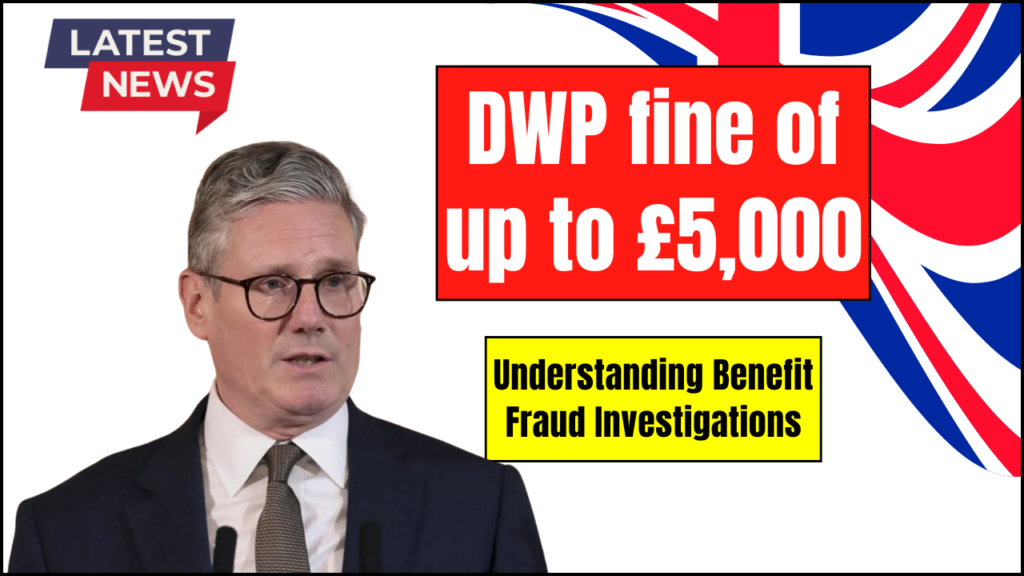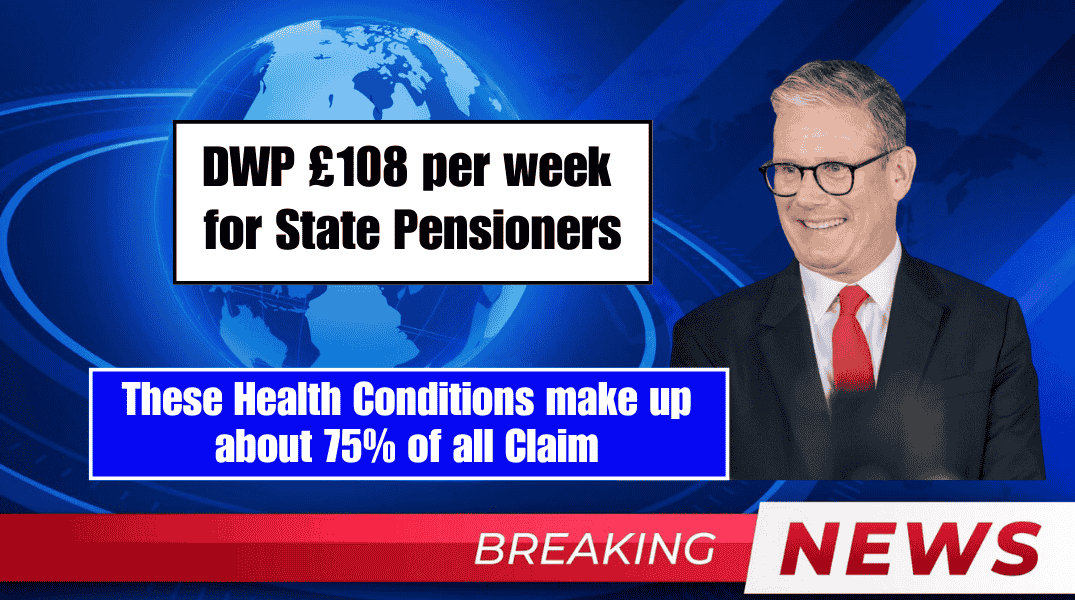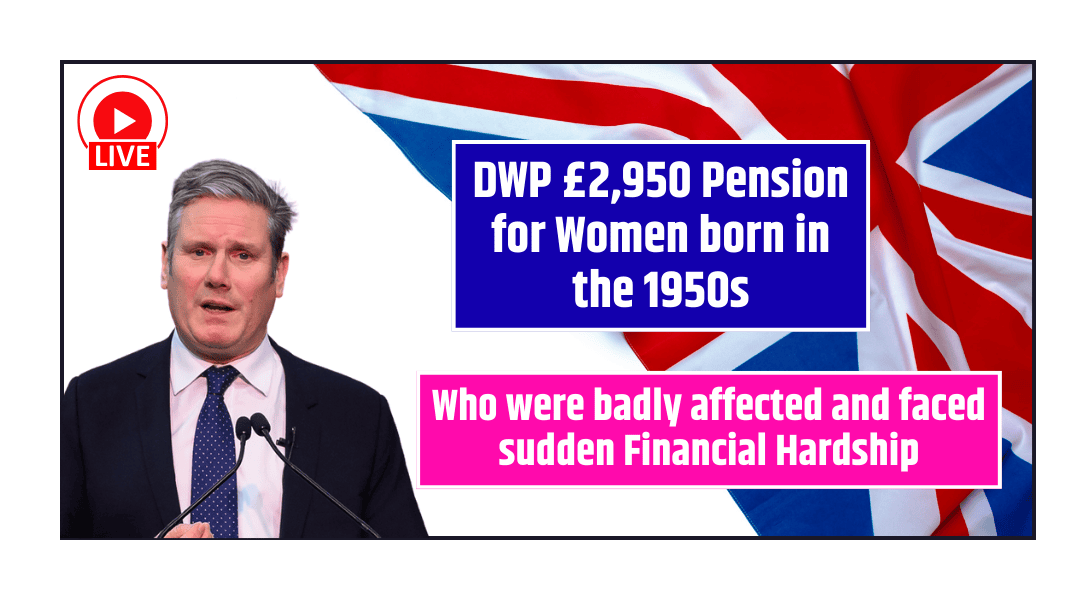
The UK Department for Work and Pensions (DWP) takes benefit fraud seriously. When the DWP suspects someone of claiming benefits dishonestly, they may send a formal letter that could lead to penalties up to £5,000. This analysis explores how these investigations work, what claimants should know, and the different perspectives on benefit fraud enforcement.
What Triggers a DWP Investigation?
The DWP initiates fraud investigations when they believe someone may be receiving benefits they’re not entitled to. This typically happens when:
- You fail to report changes in your circumstances (such as income increases or changes in living situation)
- You provide incorrect information on your benefits application
- You continue receiving benefits after becoming ineligible
When suspected of fraud, you’ll receive an official letter explaining the investigation process and possibly notifying you of a temporary pause in your benefits.
DWP is Giving £500 Before End Of The Month, Eligibility and How to Apply
Easter Day DWP Payment Schedule for April 2025: Check Complete Payment Schedule
DWP £18,570 Tax-Free Income 2025: Check Eligibility Conditions – Are you in the LIST?
The Investigation Process
DWP investigations follow a structured process to determine if fraud has occurred:
- Initial notification letter outlining concerns
- Possible “Interview Under Caution” (similar to a police interview)
- Home visits by Fraud Investigation Officers
- Review of your financial records and past benefit claims
These interviews are recorded and form part of the legal process. Citizen’s Advice strongly recommends getting legal representation during this process to understand your rights and navigate the investigation properly.
Potential Consequences
If the DWP finds evidence of fraud, several penalties may apply:
| Penalty Type | Details |
|---|---|
| Financial Repayment | Repayment of all overpaid benefits |
| Legal Action | Possible court proceedings |
| Fines | Between £350 and £5,000 depending on severity |
| Benefit Sanctions | Reduction or removal of benefits for up to 3 years |
The severity of penalties depends on the amount involved, whether it’s a first offense, and if the fraud was deliberate or accidental.
Sanctionable Benefits
Not all benefits are affected by fraud penalties in the same way. The DWP can reduce or suspend certain “sanctionable benefits,” including:
- Universal Credit
- Jobseeker’s Allowance
- Employment and Support Allowance
- Housing Benefit
- Pension Credit
- Various disability and industrial injury benefits
Even if your fraud involved a non-sanctionable benefit, the DWP may reduce your other benefits instead.
Different Perspectives on Benefit Enforcement
Government Perspective
The government views benefit fraud as a serious offense that costs taxpayers millions each year. Strict enforcement is seen as necessary to protect public funds and ensure benefits reach those truly in need.
Claimant Advocates’ Perspective
Organizations supporting benefit claimants often argue that the system can be overly punitive. They note that many cases of “fraud” result from honest mistakes, complex rules, or failures to understand reporting requirements rather than deliberate deception.
Middle Ground Approach
A balanced view acknowledges both the need to prevent fraud and the importance of treating claimants fairly. This perspective supports clear communication about responsibilities, accessible reporting systems for changes in circumstances, and proportionate penalties based on intent.
About the Department for Work and Pensions (DWP)
The Department for Work and Pensions is the UK’s largest governmental department, responsible for welfare and pension policy. It administers the State Pension and various working-age benefits to over 20 million claimants. The DWP works alongside HM Revenue and Customs (HMRC) to manage benefits and detect possible fraud. The department employs specialized Fraud Investigation Officers who are trained to gather evidence and conduct formal interviews with suspected fraudsters.
Frequently Asked Questions
1. What should I do if I receive a DWP fraud investigation letter?
Don’t ignore it. Seek legal advice immediately, either through Citizens Advice, a local law center, or a solicitor. Gather any evidence that supports your case and prepare honestly for any interviews. Responding promptly and cooperatively is important.
2. Can I still receive benefits during an investigation?
It depends on the circumstances. In some cases, your benefits might be paused during the investigation. If you face financial hardship as a result, discuss this with your legal advisor, who may be able to request interim support.
3. What if I made a genuine mistake rather than committed fraud?
The DWP does distinguish between deliberate fraud and genuine errors. If you accidentally failed to report something, explain this clearly with any supporting evidence. Penalties are typically less severe for honest mistakes, though you may still need to repay any overpayments.
Conclusion
Benefit fraud investigations can have serious consequences, including substantial fines and benefit reductions. The best protection is to always report changes in your circumstances promptly and accurately. If you do receive an investigation letter, seek professional advice immediately to understand your rights and navigate the process effectively. While the system aims to prevent fraud, it’s important to remember that many investigations result from misunderstandings rather than deliberate deception.





